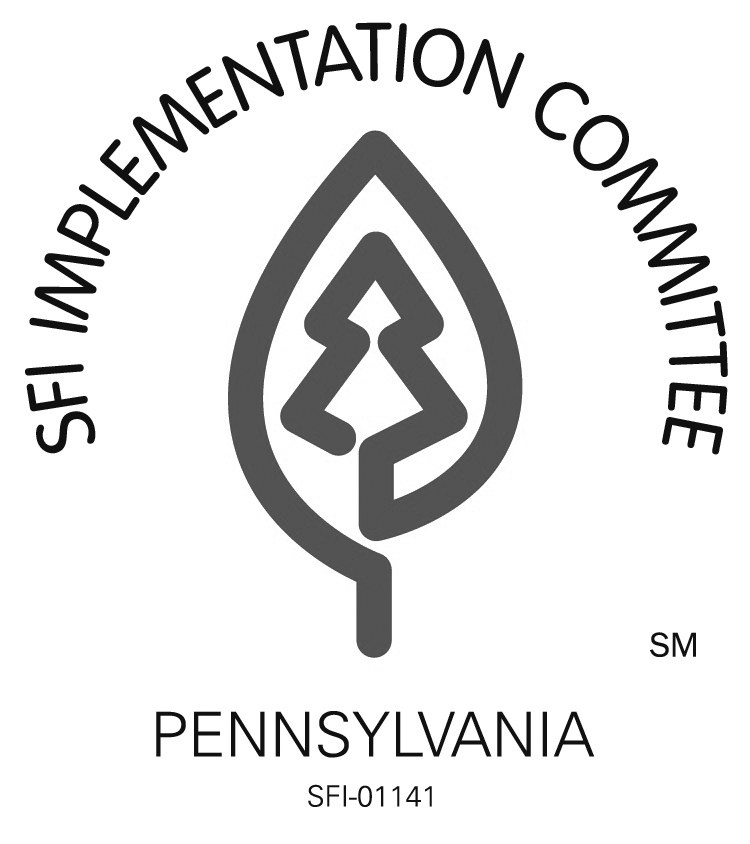Posted: January 11, 2022
Every day, the news highlights the impact of COVID-19 on people across our country and around the world. We wanted to do our best to get the voices of Pennsylvania loggers heard, understanding that though they are working in a naturally socially distanced industry, the pandemic’s impact has been far-reaching.

SFI Implementation Committee logo
First, a brief introduction―we are occupational health researchers at the Northeast Center for Occupational Health and Safety in Agriculture, Forestry, and Fishing. Our mission is to work with these industries to identify actionable solutions so that agriculture, fishing, and forestry workers can survive and thrive on the job―whether that work is a passion, a paycheck, or a combination of both.
A survey was developed to understand what went well and what did not go well during the first year of the pandemic response. We are using this information to inform policy makers, medical institutions, and logging stakeholders on how to better support the industry in the future. While the survey was sent to loggers in six northeast states, this article focuses on the responses from 167 Pennsylvania loggers.
Pennsylvania’s response rate to the survey was about 10% (1685 surveys mailed, 167 responses). Pennsylvania loggers who responded were predominantly male, with a median age of 48. Responses were spread throughout the state (see map at bottom right). Nearly half of the survey respondents were sole operators, and another 40% had small operations of two to five employees. The majority of respondents (58%) also reported working in conventional operations, with only 8% doing fully mechanized logging, and the rest working a combination of conventional and mechanized logging.
Despite their remote work locations, loggers were not able to escape the highly-infectious coronavirus. When the surveys were sent in (around late winter), four out of every five loggers knew someone who had gotten sick from COVID-19, with some loggers reporting being sick themselves or knowing multiple people who got ill. About 30% of loggers reported having high blood pressure, an area of concern given that chronic health conditions may make it harder to recover from COVID-19. Loggers reported increases in stress in their communities, based on observing higher incidences of anxiety, depression, alcohol/drug use, and physical/verbal abuse. On a positive note, loggers also indicated that they had relatively strong emotional and social supports.
In addition to affecting loggers’ physical health, the pandemic has had a significant financial impact, as many loggers were unable to work while logging companies stood idle. Pandemic-related shutdowns sent a number of logging companies reeling. Interestingly, the responses to a set of financial well-being questions in the survey indicated that loggers fared better than average, yet the comments of many loggers contrasted with this comparatively more positive outlook on financial well-being.
Many (39%) of the survey respondents indicated that the COVID-19 pandemic affected their daily work activities in profound ways, including loss of jobs, loss of workers, loss of markets for wood, increased quotas at mills, and significant changes in home life and work responsibilities. A number of loggers switched to tree work, firewood, trucking, and other side jobs to make up for the loss of income.
Of the more than 100 loggers who had children at home, 34% indicated that the pandemic has been a serious issue when it comes to childcare and education. Many have had to rely on family members to care for young children as well as homeschool older children. This has affected incomes and altered familial roles, which has been a difficult adjustment for the logging community. Based on comments in the survey, there is some animosity toward the government and the educational system for impacts on children and families.
The findings of this report are subject to several limitations, first being that with a 10% response rate, it may not represent the views of all loggers. In addition, the surveys were mailed when the US Postal Service was experiencing delivery issues, which may have affected the response rate. As with any self-reported data, these results are subject to memory decay, reporting bias, and limited detail.
The Northeast Center thanks the loggers who answered the survey, and Chuck Coup and the Pennsylvania Sustainable Forestry Initiative for their support. You can read the full report on our website at https://necenter.org/wp-content/uploads/2021/06/nelogger_covid-survey_report.pdf. We invite you to contact us should you have comments or questions by emailing nec.logging@bassett.org or calling (800) 343-7527.
By Erika Scott, Ph.D., Deputy Director, Northeast Center for Occupational Health and Safety
This article was submitted by Pennsylvania Sustainable Forestry Initiative (SFI) Implementation Committee Program Manager Chuck Coup to share with our Forest Leaves readers. For more information about the PA SFI Implementation Committee, visit their website at www.sfiofpa.org or call 888-734-9366.
James C. Finley Center for Private Forests
Address
416 Forest Resources BuildingUniversity Park, PA 16802
- Email PrivateForests@psu.edu
- Office 814-863-0401
- Fax 814-865-6275
James C. Finley Center for Private Forests
Address
416 Forest Resources BuildingUniversity Park, PA 16802
- Email PrivateForests@psu.edu
- Office 814-863-0401
- Fax 814-865-6275

